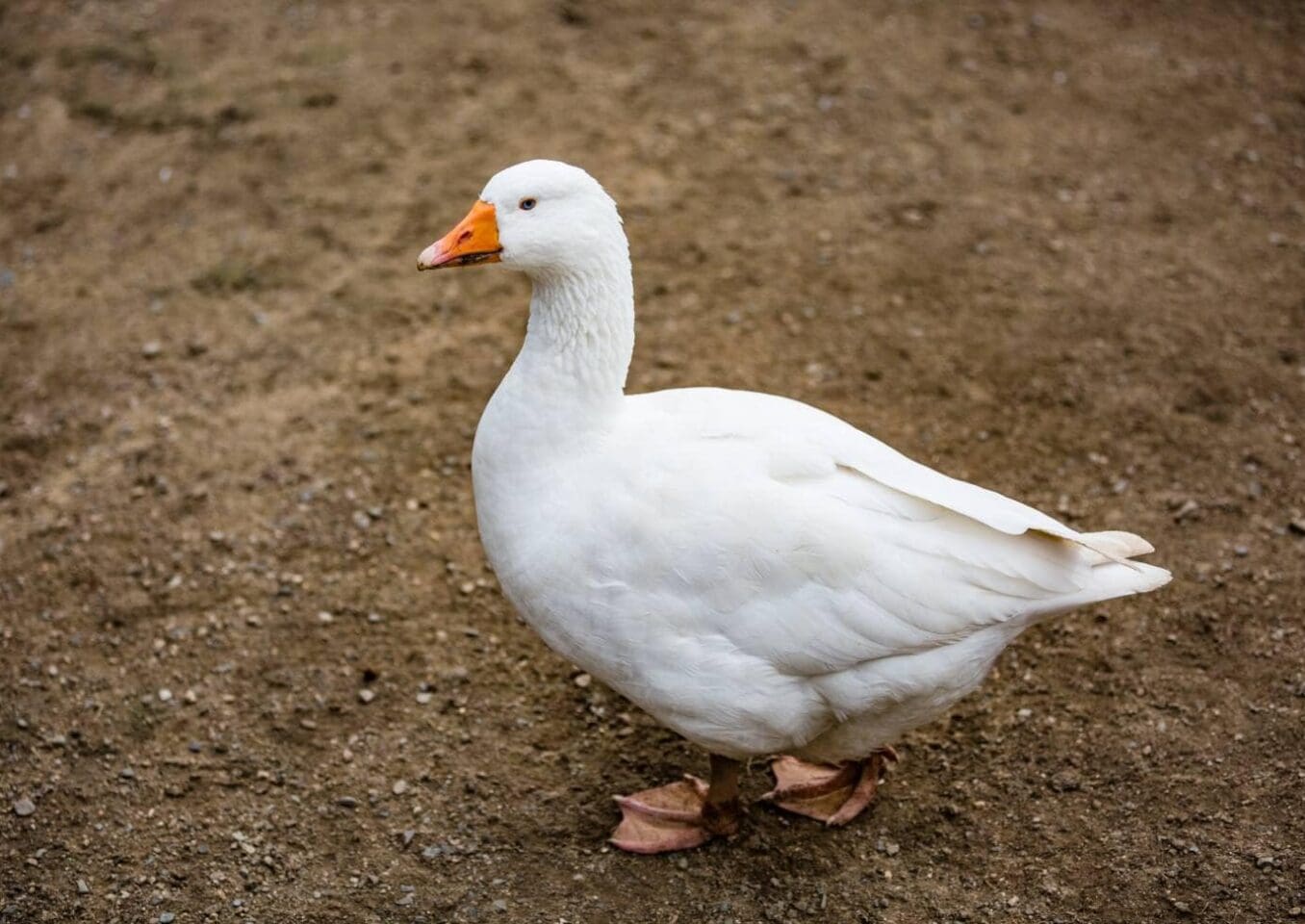If you are new to owning geese, it’s important to understand what goes into caring for them and ensuring you have all the necessary supplies to get you started. However, if you have owned poultry before, you may already have some necessary supplies. Luckily, geese are fairly easy to take care of.
So, whether you are a previous poultry keeper or new to owning geese, we have a list of supplies and recommendations to get you started!
Click to Skip Ahead:

The 9 Essential Geese Supplies
Gosling Supplies
1. Brooder
- Our Choice: Newtry Chicken Brooder Box
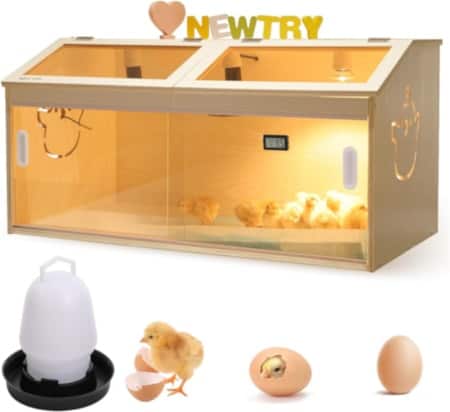
If you are raising your geese from goslings, a brooder is essential. The right temperature must be provided for young geese. You can manage the habitat and ensure that your goslings are secure until they reach adulthood by having a suitable brooding space. For goslings to stay in a brooder, only three to four weeks are necessary.
A floor area of at least 0.5 square feet is required for each gosling, so the size of your brooding space will depend on how many goslings you have. A large brooder space will let the ducklings and goslings escape the heat source. The environment in a brooder needs to be sterile and draft-free.
For roughly 20 goslings, one heat lamp is sufficient. It should include a thermometer to ensure the environment is at the right temperature. Your goslings should be started at 99-100°F (around 38 °C) for the first 3 hours and 95° F (35 °C) the following week. Their temperature should gradually be lowered as they develop their flight feathers.
Our recommendation for a brooder is the Newtry Chicken Brooder Box. It is made with waterproof and fireproof board, and it includes windows to adjust the ventilation according to the weather conditions, two ceramic lights, and one heating lamp. It also has a sliding door to ensure it can be cleaned thoroughly.
Housing Supplies
2. Shelter
- Our Choice: Ware Little Hen Big Red Barn Chicken Coop
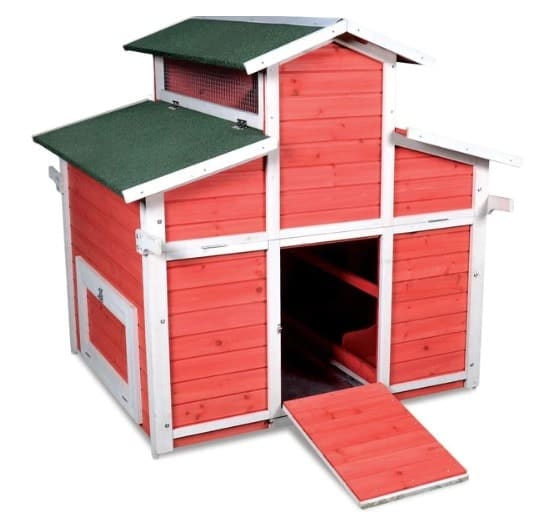
Each adult goose needs around 2 square feet of room for sleeping and protection from draughts and moisture. A sturdy, draught-free shed with a lockable entrance protects geese from predators. The most popular small shed measurement is 6 x 4 feet (1.8 x 1.2 m).
Geese can struggle with high jumps and steep inclines since they are slightly less agile than chickens. Their shelter should have a wide ramp with a moderate gradient if the entrance is above ground.
Our recommendation for the shelter is the Ware Little Hen Big Red Barn Chicken Coop. It is constructed with durable wood and includes sturdy handles for relocating it easily. Internal nesting boxes provide your geese with a safe and secure area to lay eggs, and a full-size slide-out pan also allows for quick and easy clean-up.
3. Fenced Enclosure
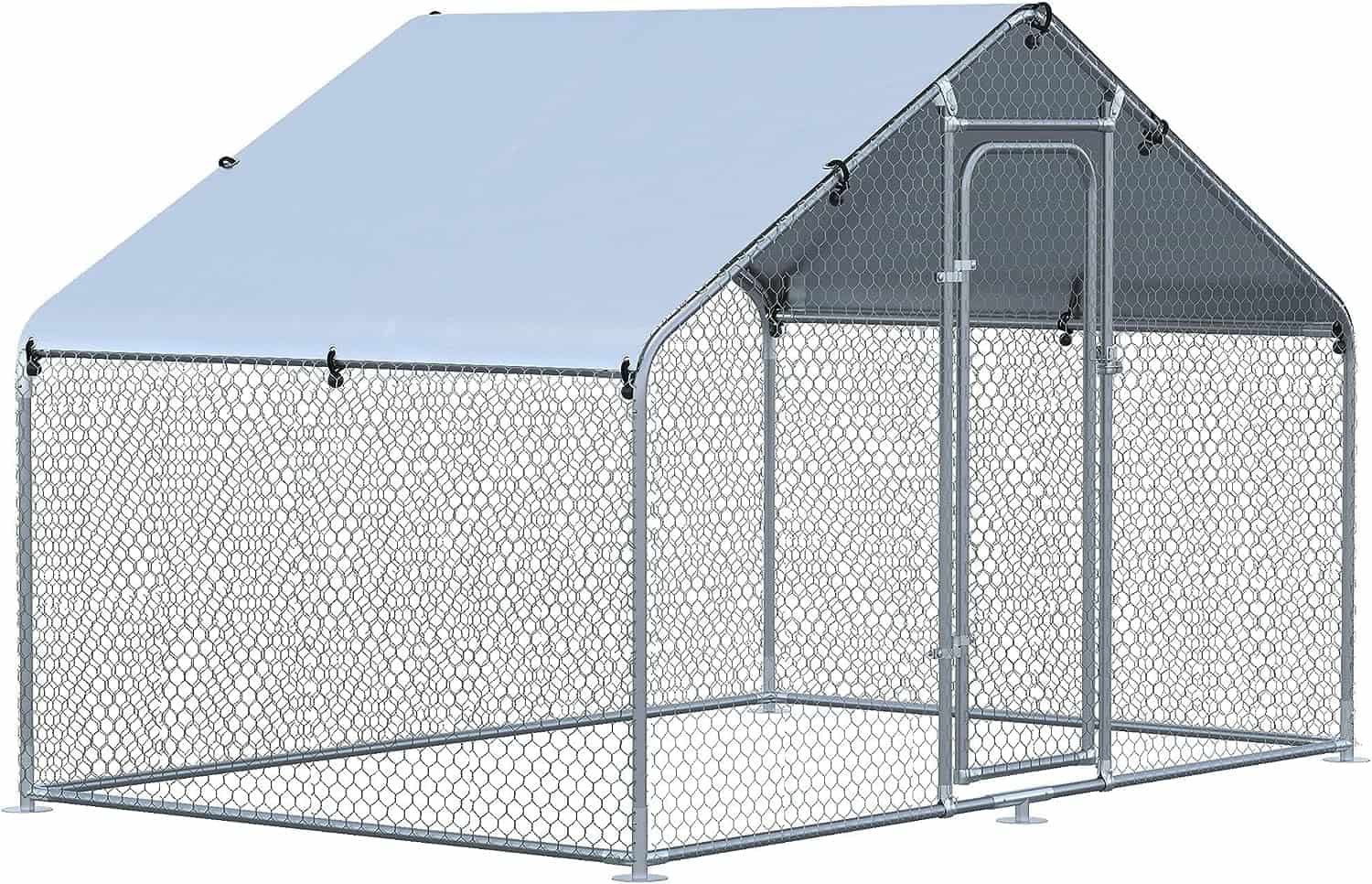
The only other significant expense you’ll need to make for maintaining geese is a sturdy poultry fence. It’s up to you if you want your geese to be free-range or enclosed, but housing them inside a secured/fence-enclosed area is the safest way to keep predators like foxes and badgers away at night.
Geese can see pretty well in the dark and are most active at night, so you can leave your geese out at night if you have a secure area. Remember that geese may make noise at night if they notice something strange, and if it’s a quiet night, the noise may wake up nearby sleeping residents.
To discourage climbing predators or more prevalent predators like foxes and badgers who may try to burrow under a fence, especially on soft, sandy soils, it is preferable to install electric wires on the outside of the fence for large areas.
A portable coop is the ideal choice to contain geese because they thrive so much on foraging. A tall fence with an outward slope on top and 11.8 inches of the bottom buried is the optimum solution. The mesh is too thick to be torn by badgers or foxes and too thin for smaller predators to fit through it.
Our recommendation for fencing is the Pawhut Walk-in Poultry Cage. It offers plenty of space for your geese to roam while staying safe. Your geese are kept safe and secure by the lockable galvanized steel door and the hexagonal mesh walls made of galvanized steel.
4. Bedding
- Our Choice: Frisco Pine Shaving Small Pet Bedding
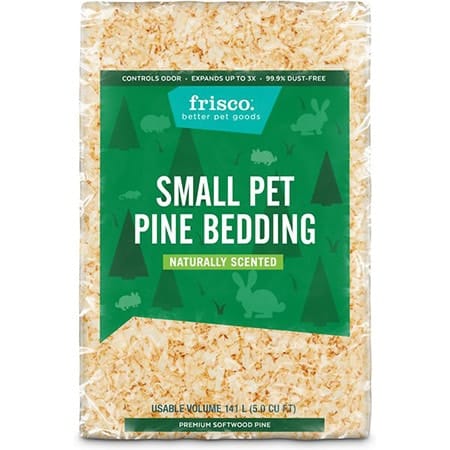
Geese are messy fowl, much like ducks and chickens. Your geese should have appropriate bedding, which you should change regularly. Two inches of large, dried pine shavings are the ideal bedding material, but avoid using cedar shavings or sawdust. For the first few days, place paper towels on top of the shavings.
We recommend buying your geese’s bedding in bulk to ensure you always have a fresh supply and are prepared for spot cleanings. Our recommendation for bedding is Frisco’s Pine Shaving. It is soft and comfy and includes no harmful chemicals or by-products. It expands up to three times its size and can absorb twice as much moisture as its dry weight.
It is important to ensure your birds have a thick layer of moisture free bedding at all times, to prevent bumblefoot (also known as pododermatitis).
5. Bathing Tub
- Our Choice: Little Giant Heavy-Duty Plastic Tub
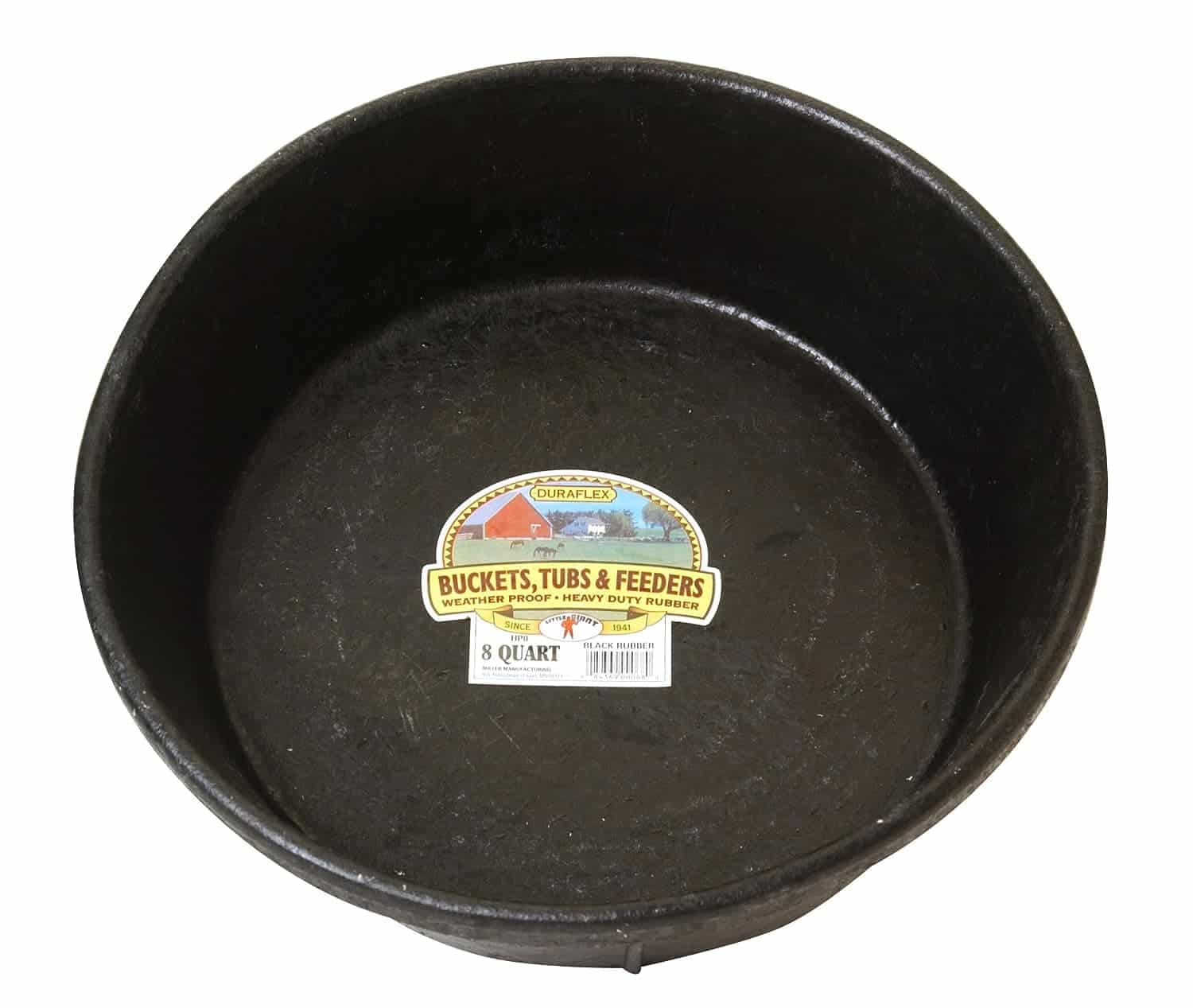
The notion that you need a pond or lake for geese is one of the biggest misconceptions about keeping them. Domestic geese swim for only around 10% of the time, compared to wild geese that spend up to 90% of their time on the water. Furthermore, they are able to eat their food on land, and have beaks strong enough to forage and tear up grass and shrubs. This sets them apart from ducks, which prefer to eat in water.
Domestic geese enjoy bathing or mating in plastic tubs that are deep enough for them to submerge fully. It is far simpler to manage their water in a plastic tub than to maintain a tiny pond’s cleanliness.
For most of the year, clean bathing water should be provided at least thrice weekly.
We recommend the Little Giant Heavy Duty Plastic Tub for bathing your geese. It is deep enough for them to dip their heads in but shallow enough for safety. The container is incredibly strong and flexible thanks to its freeze-proof corded rubber body. For multiple geese, a small pool might be preferred.
Food & Feeding Supplies
6. Food and Water Bowls
- Our Choice: ZenxyHoC Chick Feeder and Waterer Kit
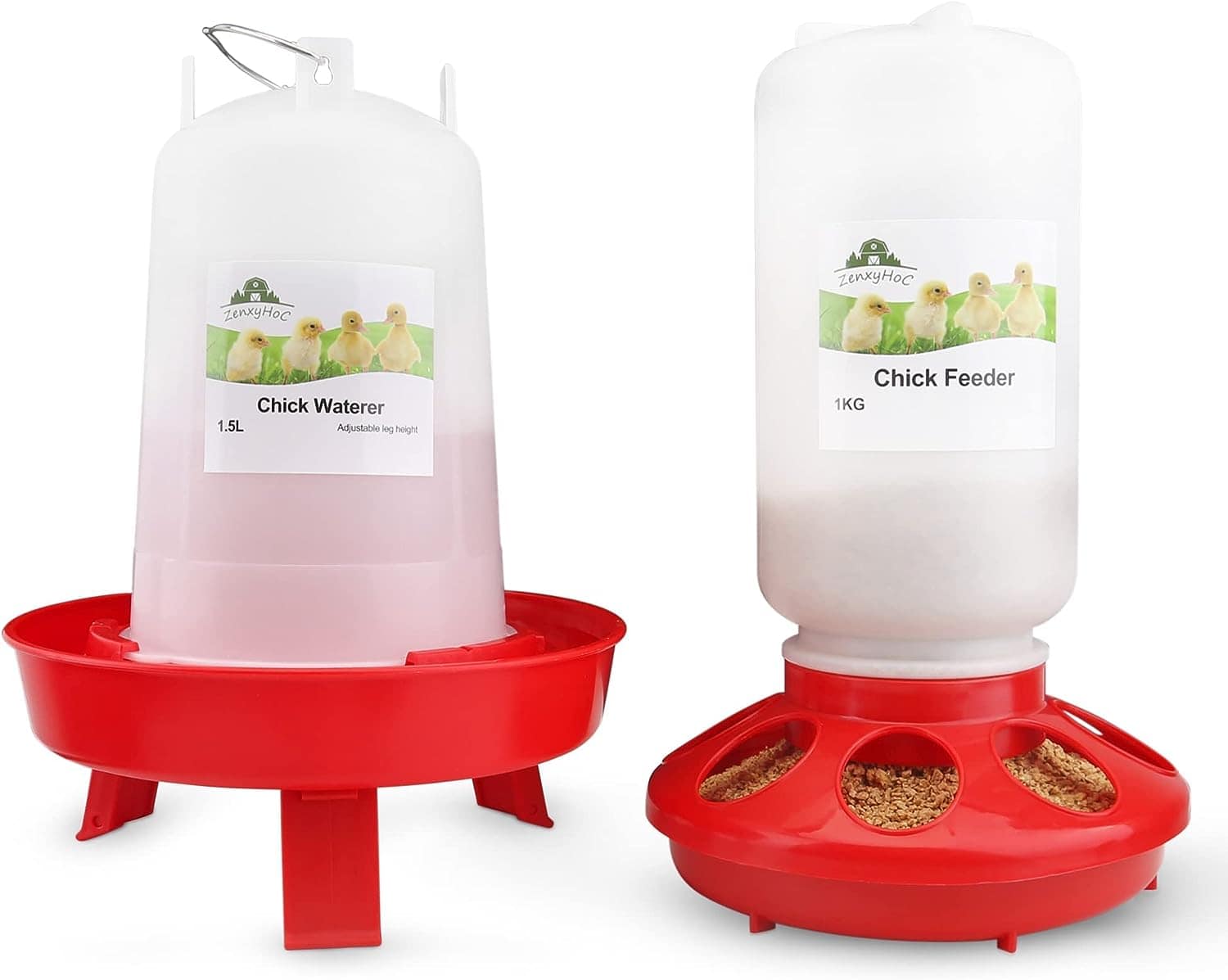
Your geese will need easy access to clean drinking water, just like any other animal. A fresh water supply should be separate from the body of water that your geese swim in and play in. It should be deep enough for the animals to clean their beaks and nostrils as they drink. They will also need bowls to keep their feed off the ground and eliminate wastage.
We recommend the ZenxyHoc Chick Feeder and Waterer Kit for convenience. This water and feeder combo ensures your geese can have fresh, clean food and water daily. The feeder includes eight holes for minimal wastage. Thanks to the 1.5 L water jug’s transparency, you can see the water level. Additionally, it features three height settings and is perfectly balanced to avoid tipping over and spilling. If you have multiple geese, consider purchasing more than one feeding and watering station for your birds.
7. Food
- Our Choice: Kalmbach Feeds All Natural Duck & Goose Food
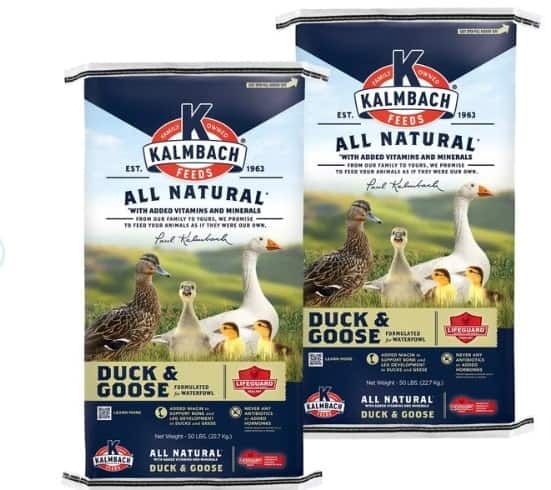
Grass makes up most of a goose’s diet. As a general guideline, assuming you also provide a pair of domestic geese with other things to eat, a large goose consumes roughly over a kilogram (2.2 lbs) of grass per day. Because domestic geese, unlike their wild cousins, are bigger and unable to fly off to another field in search of additional food, they require pellets in their diet because the nutritional value of grass varies during the year.
We recommend Kalmbach Feeds All Natural Duck & Goose Food. It provides geese with balanced and complete nutrition and includes necessary vitamins and minerals. The combination of enzymes, prebiotics, probiotics, and essential oils aids in nourishing the immune and digestive systems. The smaller food pellets are easier to consume, reducing food waste.
8. Poultry Grit
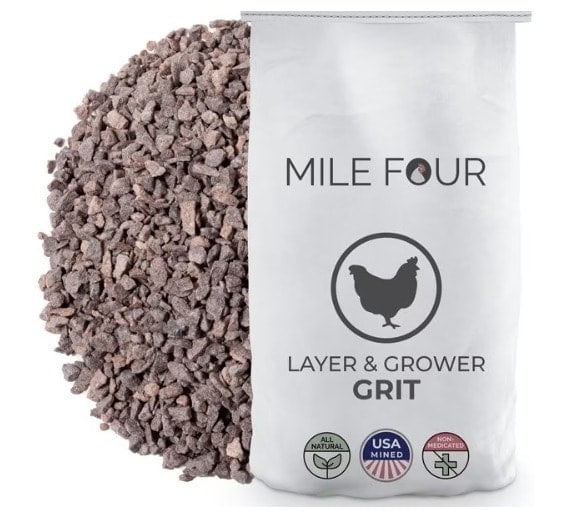
Sand and insoluble poultry grit are needed by geese to break down their meal. Sand is not required if your soil is sandy, but geese need grit to aid digestion. You could use common, easily accessible builders’ sand, but there are mixed poultry grit products available online. Though geese may consume ingest grit from small pebbles in their pasture, it’s best to offer them extra grit. Geese can regulate their grit intake, and offering them a large amount of grit is safe, as they’ll only consume the amount of grit they feel they require to aid in digestion.
As a poultry grit supplementation, we recommend the Mile Four Chicken Grit Digestive Poultry Supplement. This supplement provides your geese with the necessary components for them to completely digest meals. Your geese will instinctively seek out grit whenever they need a digestive boost if you incorporate it into their meal.
9. Supplements
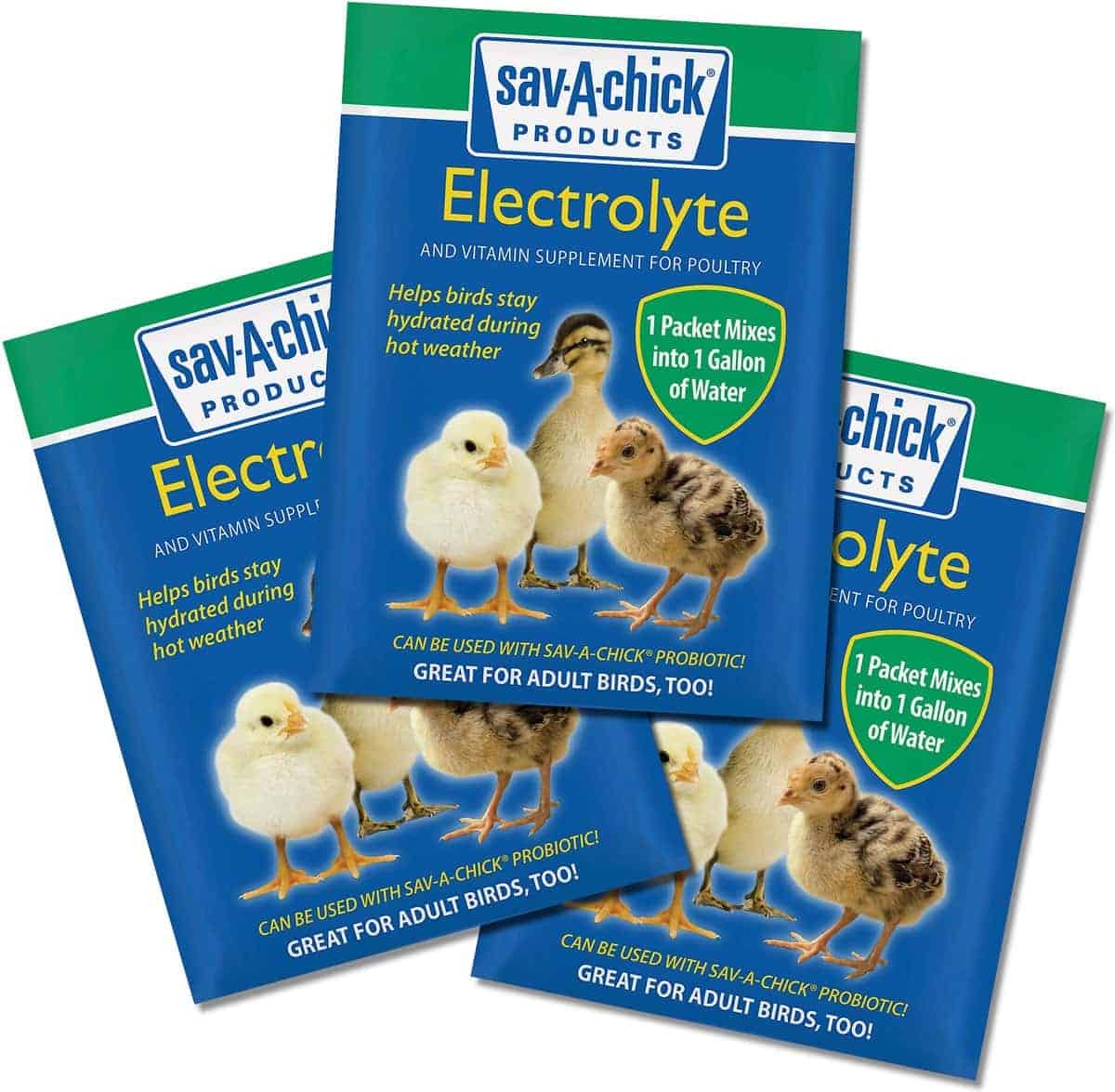
In most cases, if your goslings eat a balanced meal every day, you won’t need to supplement their diet. Compared to chickens, geese need more niacin in their meals to stay healthy. This is crucial to understand if you currently give geese chicken feed since chicken does not provide enough niacin for a goose. A niacin shortage in goslings can cause major problems with the joints and legs.
Before supplementing your geese’s diet, we recommend consulting your veterinarian. Brewer’s yeast is a great supplement for geese in extra need of niacin. We recommend Fresh Eggs Daily Brewer’s Yeast. Experts in the poultry industry developed this formula, which includes the B3 vitamin niacin.

Are Geese the Right Pet for You?
Because keeping domestic geese is not for everyone, we wanted to mention what it involves before you purchase supplies. Here are some factors to bear in mind:
- Geese are a long-term commitment, and they can live for up to 20 years!
- Ganders can be noisy birds, especially when it is breeding season, so this is something to consider if you are intolerant to noise or have neighbors that may be disturbed.
- Your geese will need continuous access to grass since it makes up most of their diet.
- Children will need to be supervised around your geese. Geese can be aggressive and territorial, especially geese that have eggs or goslings.
- You will need more than one goose since they are flock birds. The foraging space is a crucial factor to think about when owning geese. One to two geese per acre is the standard guideline. For instance, you might have up to four geese if you own 2 acres.

Conclusion
Geese are pretty self-sufficient and require only pellets, fresh water, grit, and as much grass as you can provide. They can be free-range pets, but we encourage providing an enclosure if their environment is at risk of predators. Geese can make wonderful pets, but you should consider that they will also be noisy pets. If you have decided that geese are for you, we hope that our list of supplies and recommendations has helped get you started on your journey to being a poultry parent.
Featured Image Credit: John Silver, Shutterstock
